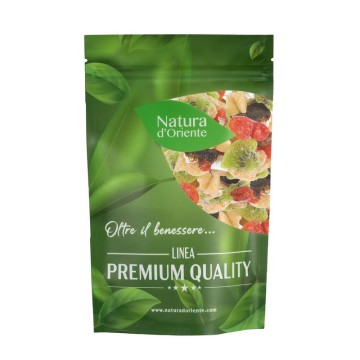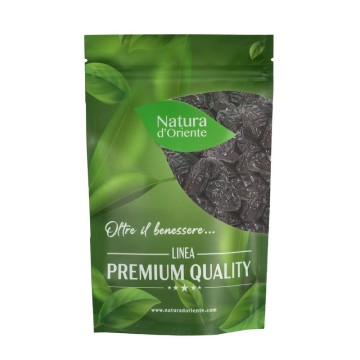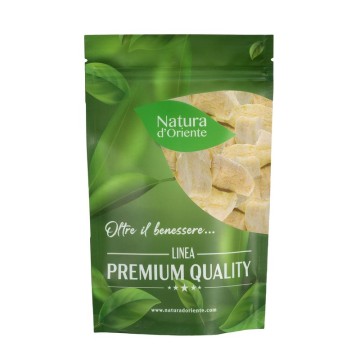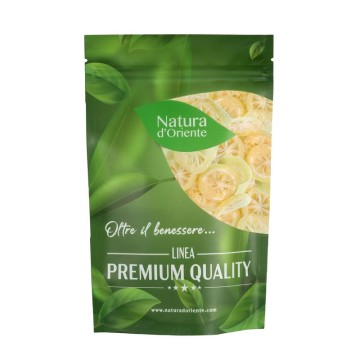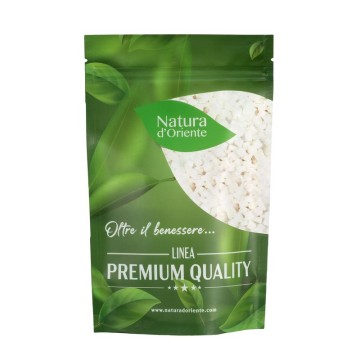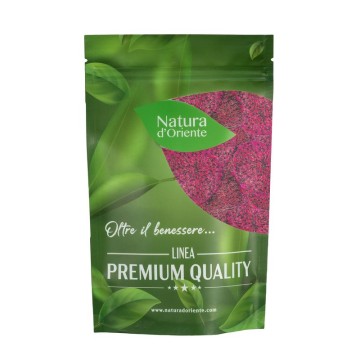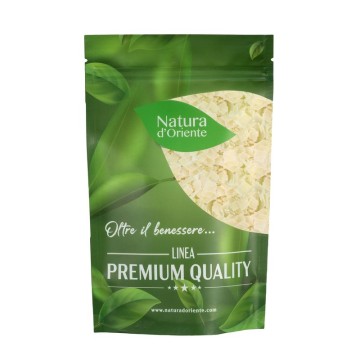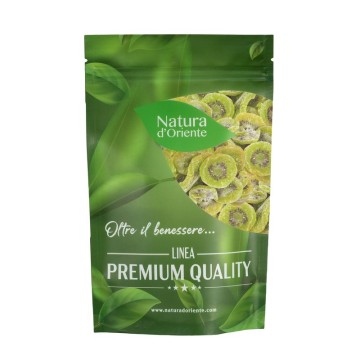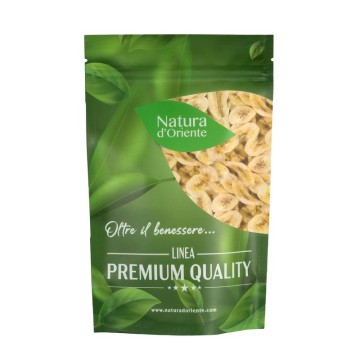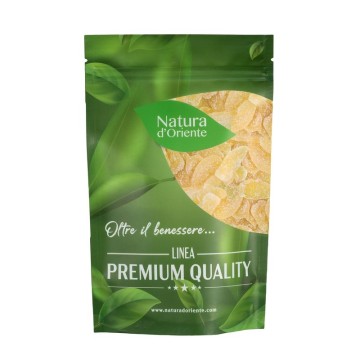Dried apricots
Like many dried fruit, apricots also become a useful food for the daily requirement of many mineral salts and energy sugars. Let's see its properties!
Dried apricots: properties and benefits
The dried fruit preserves the typical characteristics of the fresh fruit intact , and maintains in our proposal a natural tone and not darkened by preservatives.
The dried variety comes from a process that involves the evaporation of water from the fruit; a delicate process that will not affect the nutritional value of the apricot. They are often dehydrated because fresh apricots tend to bruise easily and spoil, not easily surviving the journey once harvested.
The dehydrated apricot contains, both fresh and dehydrated, various mineral salts including potassium, magnesium, phosphorus, calcium and iron. In addition, dehydrated apricots contain vitamin A and vitamin C , which can improve the condition of the skin, vision and physiological well-being. Vitamin A is also a powerful antioxidant, it helps the body get rid of free radicals, maintain the health of cells and tissues by counteracting aging.
This dehydrated fruit is considered ideal for eye health as it contains lutein and zeaxanthin, antioxidants essential for filtering sunlight.

Also vitamin K is present in dried apricots, useful for blood clotting, and for the correct functionality of the proteins that form bones. Furthermore, dried apricot is often sought after for its excellent quantity of carotenoids, elements that promote the health of our body. Beta-carotenes, or orange pigments, are precursors - that is, they will be transformed in the liver into vitamin A, vitamins B1, B2, B5, C and have various antioxidant properties.
The potassium contained in dried apricots helps improve metabolism, as well as muscle building, protein synthesis, and the well-being of organs and tissues. An important element for normal body growth and for regulating acid levels in the body. Potassium in dried apricots is present in high values (three times higher than the quantity in bananas), while it contains few traces of sodium, helping in the regulation of blood pressure. Furthermore, dried apricot can improve respiratory disorders by acting as an expectorant.
Perhaps the best known effect of apricots from antiquity is that of emollient and soothing of the digestive system. Dried apricots act as a mild laxative , which reacts to digestive juices, creating a good alkaline environment for the digestive tract and for neutralizing acids.
Consuming dehydrated apricots before a meal can help stimulate digestion , or prevent constipation . This is because dried apricots contain pectin and cellulose. Pectin helps maintain water levels in the body, while cellulose acts as insoluble fiber. Among the nutritional values contained in dehydrated apricots, in fact, is the richness of dietary fiber.
Origins and History of cultivation
Apricot has been appreciated for thousands of years, a fruit that seems to have delighted Chinese emperors 4000 years ago. The apricot tree spread from Central Asia first to Persia and Armenia, and then arrived in the Mediterranean after the conquests of Alexander the Great. Thanks to the Romans and the Empire, it then spread throughout Europe. During the Middle Ages the Arabs spread apricot cultivation again, since they also used it in the pharmacological field - for example to treat earache. In the Renaissance the apricot tree enjoyed growing fortune, and today anocra is grown wherever there is a fairly warm climate.
A legend about this plant tells that originally it was only considered as an ornamental, due to its beautiful white flowers. When the Armenians were invaded by the enemies, they were ordered to cut down all the trees that did not produce fruit, in order to obtain the timber. A girl, then, crying all night under the foliage of the tree, made sure that in the morning some golden fruits had grown on the branches: apricots.
Plant and Fruit
Apricot comes from the plant called Prunus Armeniaca, belongs to the Rosacea family and has an Asian origin. From this tree derives a small fruit, orange and yellow, with a unique flavor, not too sweet and with pungent notes. THEREApricot is a deciduous tree, with an umbrella-like crown, thin trunk and branches, reddish bark. In growing in the wild it is quite tall, even reaching 12 meters. In crops, however, this shrub is usually kept more or less below 4 meters to facilitate the harvest of apricots. The leaves of the apricot are oval, glossy, and the white-pink flowers bloom towards the end of winter before the leaves.
The fruits, the apricots we are dealing with, have different varieties, and ripen from May to July. The very juicy pulp and the unique taste favor their use for the production of fruit juices, jams, dehydrated apricots.
Nutritional values of dried apricots
Dried apricots have a not excessive caloric intake , like dried fruit, since they provide 241 Kcal for every 100 grams. Among the various types of dehydrated fruit, apricots make available proteins (about 3%), mineral salts and vitamins, very few fats, soluble and insoluble fibers (around 7%).
In apricots we find good values of vitamin A (3604 IU), Vitamin A, RAE (180 µg), beta-carotene (2163 µg), Vitamin C (ascorbic acid - about 9 mg), vitamin K (3.1 µg), vitamin E (4.33 mg) and others of group B. In particular vitamin B3 or Niacin (about 2.59 mg), B5 or pantothenic acid (1.07 mg) and B6 or pyridoxine ( 0.52 mg). This dehydrated fruit contains, as already mentioned, the vitamin substance of lutein. At the level of mineral salts, 100 grams of apricots give good levels of calcium (55 mg), potassium (1162 mg), magnesium (32 mg), phosphorus (71 mg), iron (about 2.66 mg), copper (0 , 34 mg), manganese (0.24), selenium (2.2 µg).
How to consume dehydrated apricots in the kitchen or as a snack
Dried fruit is often eaten directly as a snack, or included in sweet recipes. In fact, even dried apricots are eaten as a snack in the mid-morning or afternoon, and often to give energy, being rich in sugars, vitamins and minerals.
The dehydrated apricots are ideal to be inserted in the preparation of fruit salads, cakes, yogurt, smoothies, vegetable milk, as a decoration on cupcakes, ice creams or for a breakfast with a mix of dried fruit. In addition, dehydrated apricots can be an ingredient for energy bars used by athletes.
Dried apricots: side effects and contraindications
There are no particular contraindications to taking apricots, unless there is an intolerance or allergy to the food. Consumption, however, should be limited for those suffering from diabetes, due to the sugars contained, and for those who fear laxative effects. Furthermore, dried apricots contain oxalates, indigestible compounds that can be harmful for the formation of kidney stones, and for this reason they should be consumed with caution by those suffering from this pathology.
![]()

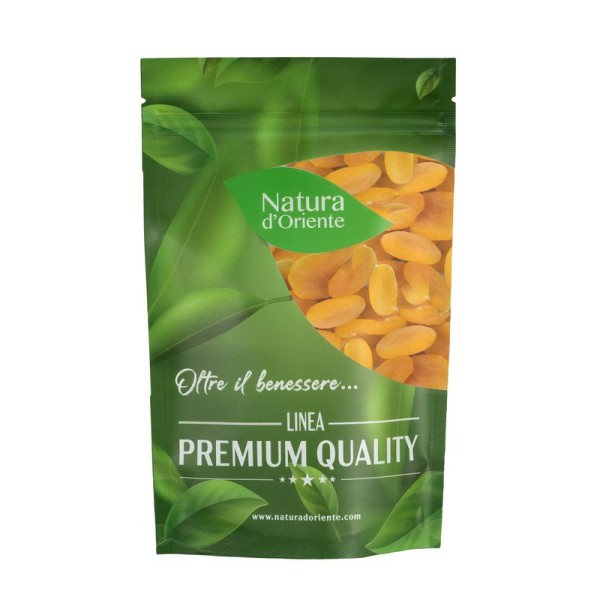









 No reward points for this product.
No reward points for this product.



